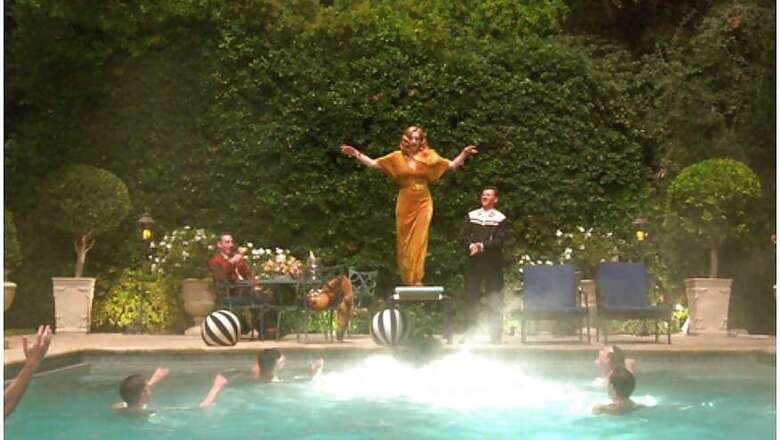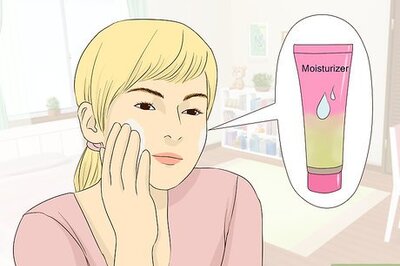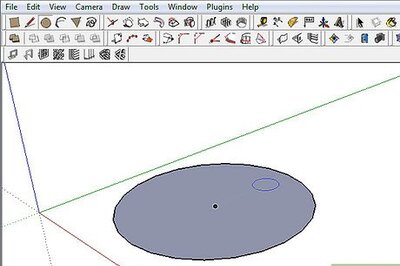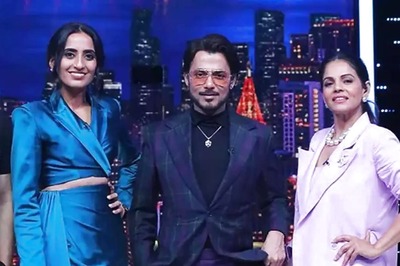
views
Hollywood
Cast: David Corenswet, Darren Criss, Laura Harrier
Creators: Ryan Murphy, Ian Brennan
Retro Hollywood stories never fail to impress. The sharp suits, fedoras, dolled-up women looking all glamorous and mysterious, have a certain visual appeal that immediately gets your attention. It gets even more spectacular if the story is about the trials and triumphs of younger versions of iconic movie stars from the past, both real and fictional. Producer Ryan Murphy and collaborator Ian Brennan probably know precisely how well this mash-up works.
But here they present an enchanting fairytale re-imagining of what Hollywood could have been, if only. The creators go about merrily re-writing Hollywood history and correcting some major biases and flaws in the Hollywood juggernaut. The show scores high on inclusiveness. Over its 7 episodes, it gets everybody a seat at the Hollywood table-women, homosexuals, Blacks, Asians, older players- all while holding your attention and making you root for each player- nothing short of a miracle, we’d all agree.
It starts off with a young fresh-faced Jack Castello (David Corenswet) hanging outside the gates of Ace Studios to land a small part as an Extra in order to keep the home fires burning. He has fought for the country but now, finds himself unemployed and even has a wife who is in the family way. Given his lanky, freshly-scrubbed good looks, and fascination with the movies, he is keen to become an actor. However, unable to get past the studio gates and with no money coming by, Jack takes up an unusual offer from Ernie (Dillon McDermott), which requires him to work at a gas station and also be an ‘Escort’ to some of the rich Hollywood clientele. Conflicted about the work, he eventually takes it up to put food on the table. But, in fact, it is through this dubious gas station that he eventually ends up where he has imagined himself to be. Quite serendipitously, Jack meets a casting director who eventually gets him a foot in the door into one of Hollywood’s hallowed ground- Ace Studios.
But the story is not all about Jack. There are others with dreams of their own—young half-Asian director Raymond Ainsley (Darren Criss), an African-American actress Camille (Laura Harrier), a semi-fictional struggling actor Rock Hudson (Jake Picking), a Chinese-American actress Anna May Wong (Michelle Krusiec), and an African-American Homosexual screenwriter Archie Coleman (Jeremy Pope) each trying to find Hollywood glory.
Like pieces of a gigantic showbiz puzzle, their lives begin to come together and fall into place. Through their individual circumstances, they’re each roped in to make a career-defining Hollywood movie called Peg- based on the life of the real-life actress Peg Entwistle who jumped to her death from atop the "H" on the iconic Hollywoodland sign.
Archie’s script for Peg is picked up by young, debutant director Raymond Ainsley as Ace Productions next project. But, as the production progresses Archie and Raymond and his girlfriend Clare come up with a re-imagining of their own- they decided to make the heroine an African-American and cast Clare. How they manage to make the movie, which is re-titled as Meg, becomes the main engine of the rest of the show.
The show with its mix of real characters like Rock Hudson struggling with his career and sexual identity and the obsessive-compulsive Vivien Leigh or even depictions of slimy, degenerate notorious Hollywood agents like Henry Wilson (Jim Parsons) conjures up old Hollywood lores and legends. But there is one major difference—in the end, the show weeds out the stings and hurt of the social biases and prejudices prevalent at the time. Through Rock Hudson’s track, the show makes the point rather strongly about gays and homosexual men struggling to break away from the burden of the indignity of their dark secret. There is a strong case made for racial and ethnic stereotyping too.
For instance, the fact that African-American actresses were only considered good enough for playing slaves and domestic help and Asians as exotic, opium-addled courtesans. It's a reality that both Camille and Anna May Wong battle. Women were earmarked primarily for the role of home-makers as portrayed through the dynamic Avis Amberg (Patti Lu Pone). Amidst all the social red flags being raised through the series, I did worry that the story was likely to go off the rails. Luckily it doesn’t.
Plots and subplots collapse neatly into the larger trajectory of the show. Perhaps a tad too neatly, some may argue. Everybody important in this story makes it a little too easy for the cast and crew of the film Meg (which also goes on to make history) to overcome the hurdles that block their way. Given the complexity of the relationships at play compounded by the prevalent social mores, a little more villainy would have helped. Henry Wilson and Ace Studios’ lawyer seem to be the only ones holding up their bargain on the antagonistic front. Sure there are the standard bits about casting couches, affairs, debauchery, and decadence, but for purposes of its own story, the writers of Hollywood rework those rather well. And, the show, like its title, has a true ‘Hollywood Ending’.
Be that as it may, its foibles and the perfectly calibrated HEA (Happily Ever After) did not dim the charm for me in the least bit. It was a little bit like reading the politically-correct version of Grimm Brothers’ Fairy Tales. The weaker and the meeker find their voice, the villains find their conscience and almost everybody finds their glass slippers or their Prince or Princess Charming.
Hollywood, the show, is a picture-perfect version of what Hollywood Moghuls who ran the showbusiness, could have done right much earlier than they did in real life. With all the popular influence and cultural soft-power that Hollywood wields worldwide, perhaps the world itself would have been better for it.
Rating: 4/5




















Comments
0 comment